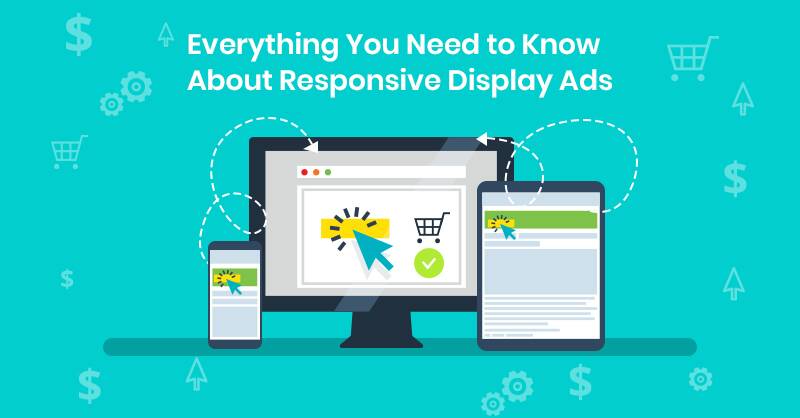Imagine an ad that can adjust itself to fit any ad space on a website. Cool, right? That's the flexibility Responsive Ads can offer you.
Announced in Sep 2017, Responsive Ads have now become the default ad type on Google Display Network. This not only saves time but gives a wider reach for your advertisement.
What is a responsive display ad?
Remember the antagonist from "Terminator 2," who moulds into any shape when heated? Responsive Display Ads (RDA) do the same.

Google automatically generates these ads through its machine learning algorithm using the ad assets provided by the user. This typically includes images, text, video, logo, etc.
An advertiser can add up to 15 images, five headlines, five descriptions, five videos, and five logos. Then, Google's algorithm will choose the best combination for creating Responsive Display Ads.
Designing a Responsive Display Ad
The introduction of Responsive display Ads has given a new life to designers. Gone are the days where designers had to create 15-20 image assets to fit every size on the web page.
Responsive Display Ad Dimensions
1. Advertising Image
You may include as many as 15 images here. The images can be in landscape or square dimensions.
The ideal image dimensions are below:
Landscape (1.91:1): 1200 × 628 (min required: 600 × 314, max file size: 5120KB)
Square (1:1): 1200 × 1200 (min required: 300 × 300, max file size: 5120KB)
Image Text:
Many of us forget the fact that Responsive Ads are being resized into a number of smaller ad dimensions on display networks. Apart from this, the image could be cropped by a maximum of 5% horizontally to fit certain ad spaces. Hence, it's recommended to keep the text short and bolded on the image, so it's easily visible. Also, don't forget to take into consideration that the text should not be more than 20% of the actual image.
The Responsive Ads interface also allows you to scan your website & upload images automatically for the advertisement.
2. Logo
Adding a logo is optional. However, if you're running a branded campaign, then this is inevitable. You could add a logo in both a square and a landscape format. Adding only a landscape logo can limit your reach and isn't recommended.
Landscape (4:1): 1200 × 300 (min required: 512 × 128, max file size: 5120KB)
Square (1:1): 1200 × 1200 (min required: 128 × 128, max file size: 5120KB)
3. Video
As of now, only YouTube videos are permitted for advertising. The preferred lengths for videos are 30 seconds or less. If your video is not on YouTube, then you'll need to upload it to YouTube and paste the video URL to generate ads.
Benefits of Responsive Display Ads
1. Easy Setup
Setting up a Responsive Display Ad is as simple as plucking a flower. You don't even need a designer!
Yes, you heard that right. The Google Ads interface allows you to scan your website and fetch images automatically that could serve as Responsive Display Ads.
2. Reach
Take a look at the above image from one of our ad accounts. As you can see, the Responsive Display Ad gives you a wider reach as it's eligible for users to see on a number of placements.
Optimization
1. Placements
Reviewing the placement periodically is key here. It's wise to review the ad placements every week and eliminate non-performing websites or apps over a period of time.
2. Frequency Cap
In order to limit the number of same users seeing your ad in a day, you may use a frequency cap of 3-5 to prevent ad fatigue.
Conclusion
In short, Google's Responsive Display Ad opens a whole new world of possibilities with your advertisement. You could be creative with your advertisement by incorporating multiple images, texts, and videos on a single ad where Google's machine learning algorithm will determine the best possible outcome of an ad that would be shown to a user. Responsive Display Ads can also be used for dynamic remarketing by attaching a feed to the campaign. So, if you haven't tried this on your accounts, feel free to do so and let us know if you have any questions!
